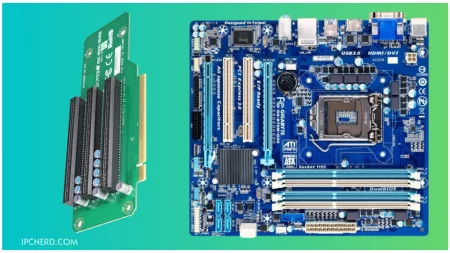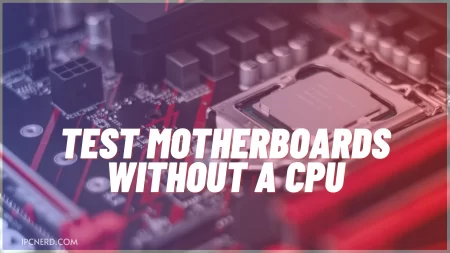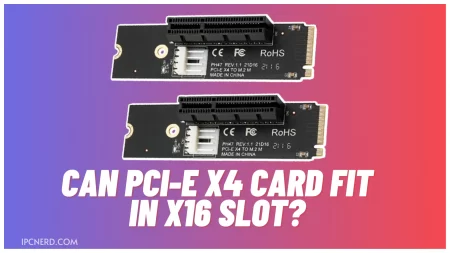Gaming has become an all-consuming career, taking up a significant amount of time and one in which many people are making a living. In recent years it’s also become hugely popular online.
The question of whether a motherboard matter for gaming is up for debate, but what’s more important?
- Does motherboard matter for gaming
- How does a motherboard affect gaming performance?
- Motherboard for Gaming
- How to Replace the Motherboard in Your Gaming PC
- How to Choose the Right Motherboard for Gaming
- 1. Consider Your Budget
- 2. Performance vs. Compatibility
- 3. Choose Based on Your Needs
- Which Motherboards are Best For Gaming?
- Frequently Asked Questions
- Conclusion
Does motherboard matter for gaming

There’s no one-size-fits-all answer to this question, as the type of motherboard and processor you choose will largely depend on your gaming needs and preferences. That said, there are some general factors to consider when choosing a motherboard for gaming.
First and foremost, it’s important to figure out what kind of graphics card you’ll be using. Some motherboards are better suited for high-end cards with tons of dedicated GDDR5 memory, while others are more suited for budget cards with less memory bandwidth.
If you’re unsure which kind of graphics card you have or which type of motherboard is best, check out our graphics card guide or our motherboard guide to find the right information.
Another important factor is how many PCI Express slots your graphics card will require. Many motherboards come with enough slots for at least one graphics card, but if you have a second or third graphics card, you’ll want to check to see if your motherboard has enough PCI Express slots available.
Some motherboards only have one PCIe slot available, so be sure to plan if you’re looking to upgrade your hardware shortly.
Lastly, deciding what features are most important to you when choosing a motherboard for gaming is important.
Some features that may be more important to you than others include onboard audio, USB 3.1 support, and M.2 slots for speedy storage access. It’s also worth checking out reviews.
How does a motherboard affect gaming performance?
A motherboard is the central component of a PC, and its performance can significantly impact gaming performance.
A good motherboard will have various features that can improve gaming performance, such as more powerful graphics cards and faster memory slots. A bad motherboard may not have these features, limiting your gaming experience.
Some other factors that can affect gaming performance are the CPU and RAM brands, the type of case you’re using, and the power supply.
Getting a motherboard with the features you need that will fit your specific needs is important. Different motherboards are designed for different types of users, so it’s important to research before making a purchase.
Motherboard for Gaming
Motherboards for gaming can be broadly classified into the budget and high-end motherboards. Budget motherboards are usually designed for users who are not interested in overclocking their system.
In contrast, high-end motherboards are better equipped to handle advanced gaming features and come with more powerful components.
However, not all high-end motherboards are created equal, and some may not be appropriate for use with a low-power processor or a graphics card that doesn’t support SLI or CrossfireX.
When choosing the right motherboard for your gaming needs, it’s important to understand what features you need and which ones you can live without.
Some key features to look for on a motherboard include onboard graphics, an integrated chipset, multiple USB 3.0 ports, gigabit Ethernet, and support for DDR4 memory. It’s also important to consider price and compatibility when making your purchase.
For example, if you’re looking for a budget motherboard that will support a low-power processor and a basic graphics card, it might be best to look for one that isn’t included in many high-end builds.
Conversely, if you want a motherboard that can handle more powerful components and is compatible with SLI or CrossfireX, you’ll need to spend more money.
Overall, motherboard choice is mostly personal preference based on what features you need and which parts your system can support. If you’re new to gaming or don’t know much about hardware specification comparisons between different brands
How to Replace the Motherboard in Your Gaming PC
If your gaming PC is having trouble running the latest games or you want to upgrade its hardware, replacing the motherboard may be a good option.
A new motherboard can improve your system’s performance by increasing the number of RAM slots and USB ports, adding more powerful graphics processors, and providing faster-wired connections.
There are several factors to consider when choosing a motherboard for your gaming PC. The size of the graphics card and CPU socket are two important considerations.
Some motherboards have more than one graphics card socket, while others have only one. You also want to ensure that the motherboard has at least one PCI Express x16 slot since most modern GPUs require that connectivity.
Many motherboards include extra USB ports, HDMI ports, and Gigabit Ethernet connectors. If you plan on installing additional storage or peripherals in your system, look for a motherboard with enough bays to accommodate them.
Also, make sure that the connector type offered by the board is compatible with the devices you plan to use it with. For example, many motherboards feature Thunderbolt 3 connectors which support high-speed data transfers between devices such as hard drives and displays.
How to Choose the Right Motherboard for Gaming
Choosing the right motherboard for gaming can be a challenge. There are a lot of factors to consider, like budget, performance, and compatibility. Here are some tips to help you choose the right one.
1. Consider Your Budget
The first thing to think about when choosing a motherboard is your budget.
Do you want a high-end option that will outperform most other boards or something more affordable that still offers good performance? It depends on your needs. An entry-level board may be great for you if you don’t need the best performance.
2. Performance vs. Compatibility
Another consideration is whether or not you need compatibility with other components in your system. A high-end motherboard may come with more features than what is necessary for gaming, but it may not be compatible with other components in your system.
For example, if you have a graphics card that requires PCI Express 3.0 slots, chances are that your motherboard won’t have those slots and instead will use PCI Express 2.0 slots which might lower your graphics card’s performance.
In this case, it would be better to choose a board with fewer features but is still compatible with your components so that everything works together smoothly.
3. Choose Based on Your Needs
The last thing to remember when choosing a motherboard is your needs specifically for gaming.
Will you only be using basic functions like Bluetooth and USB ports? Or will you need more advanced features like multiple PCI Express slots or a built-in graphics card? Once you know what you need, choosing the right motherboard is easier.
Which Motherboards are Best For Gaming?
There are a lot of different factors to consider when purchasing a motherboard for gaming, but the main ones to keep in mind are platform compatibility and features.
Different motherboards are better suited for different types of games. For example, some motherboards are better for action/adventure games, while others are better for strategy games.
Another important factor to consider is platform compatibility. Most motherboards are designed to work with specific processors, such as an Intel or AMD processor. Select a motherboard that will fit your processor and gaming needs.
If you’re looking for features, look for motherboards with built-in graphics cards and lightning-fast networking capabilities. Motherboards with these features will make your gaming experience more enjoyable.
Frequently Asked Questions
What is the motherboard, and why is it important?
The motherboard is the central component of your gaming PC. It’s where all the components come together to form your machine – from the processor and graphics card to the storage and memory. And while other factors like case quality and power supply can also greatly impact your gaming experience, good motherboard design is essential for smooth gameplay.
What are some popular motherboards used in gaming PCs?
Some of the most popular motherboards used in gaming PCs include Asus ROG Strix Z270E Gaming, EVGA Supernova G2 1000 W1, Gigabyte AORUS X399-D4I, MSI MPG Z390M Gaming Pro Carbon AC, and ASRock X299 Taichi. Each one offers unique features that can make your gaming experience smoother.
What are some common problems with motherboards?
A few common problems with motherboards can affect your gaming experience. First, if your motherboard doesn’t have enough ports available, you might not be able to connect all of your devices properly. This can cause conflicts between games and other hardware installations, leading to poor performance or even crashes. Second, if your motherboard isn’t built well, it might fail after a short time – usually due to defective components within it. And finally, if you don’t care for maintenance, your motherboard may eventually start experiencing problems due to accumulated dust and other debris. These problems can lead to crashes, poor performance, and even hardware failure.
What are the benefits of buying a good motherboard?
One of the benefits of buying a good motherboard is that it will usually be more stable and reliable than a less-quality model. This is because good motherboards are designed with quality materials and features that prevent them from failing or experiencing any major issues over time. And since most gaming PCs are built to last for many years, investing in a good motherboard is worth it!
Learn more about Motherboard performance for Gaming:
Conclusion
There’s no doubt that motherboards play an important role in gaming performance. Choosing the right one can make or break your experience with a specific game and impact system stability and overclocking potential.
However, other factors to consider when choosing a motherboard for gaming include graphics card compatibility and cooling requirements. Ultimately, it is best to consult with someone experienced in this field to get the most out of your computer gaming experience.







